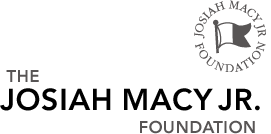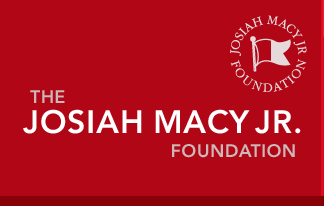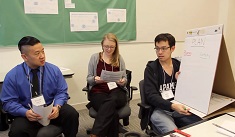Our Grantees
Across the Foundation’s priority areas, our grantees are working to improve the health of the public through innovative research and programs. The Foundation awards up to 40 grants on a rotating schedule each year.
An Education and Practice Collaboration to Relieve Pain and Suffering
The United States is in the midst of an opioid crisis, with overdose deaths from pain killers at an all-time high. Prescription pain medications are at the heart of this problem.
At the same time, an estimated 116 million American adults suffer from chronic pain—more than the total affected by heart disease, cancer and diabetes combined.
To equip the future healthcare workforce with the skills they need to effectively relieve pain and suffering, the UC Davis Health System set out to develop interprofessional pain-management modules for pre-licensure students.
“Treatment and care for patients experiencing pain requires a team of healthcare professionals who bring expertise from a variety of disciplines, which makes it the ideal subject for interprofessional education,” said Heather Young, Associate Vice Chancellor and Dean of Nursing at the Betty Irene Moore School of Nursing, University of California Davis. “It’s also a very complex and compelling problem. It’s hard to get students from different schools together and it is not as effective when you’re doing it for the sake of it in and of itself. You need that compelling problem to galvanize around in order to make interprofessional education successful.”
In 2012, the Center for Advancing Pain Relief (CAPR) at the UC Davis Health System held a two-day summit, convening pain experts from 10 health professions to identify a set of core competencies for pain management, work supported by the MayDay Fund.
Building on this work and the Core Competencies for Interprofessional Collaborative Practice developed by the Interprofessional Education Collaborative, Dr. Young and Dr. Scott Fishman, Director of CAPR, convened colleagues from the UC Davis School of Medicine, the Betty Irene Moore School of Nursing, UCSF School of Pharmacy and California State University social work program—with support from the Josiah Macy Jr. Foundation—to develop interprofessional pain management modules for medicine, nurse practitioner, physician assistant, pharmacy and social work students.
They narrowed in on six interprofessional competencies and six pain management competencies and created three case studies, each progressively more complex, for students to tackle as a team:
- Gerald was diagnosed with metastatic prostate cancer 17 years ago. His pain is usually controlled by a novel chemotherapeutic agent, but he is experiencing breakthrough pain. This case is presented to students as a chart review.
- Hannah, 72, recently checked into a nursing home. She has an aching pain in her right hip that has been bothering her since the move. Her son wants her to get treatment for the pain, but she is not sure what’s best. For this case, students work with a standardized patient—an actor—to devise a care plan.
- Rick owns a bakery. He’s 59 years old, Hispanic and a widower who lives alone. He still has pain in his right foot from an accident 25 years earlier. He has put off seeking care, but the pain is making it tough to do his job. Rick’s case is delivered to students through video.
Each case offers students an opportunity to refine two of six interprofessional competencies—advocacy, collaboration, mutual respect, communication, patient preferences and cultural inclusiveness—as well as two of the six pain management competencies.
Each case study is accompanied by a facilitator guide and an evaluation survey for faculty. These modules are available for free on the MedEdPORTAL.
In evaluations, students from schools of medicine, nursing, pharmacy, and social work who participated in a 2015 and 2016 pilot of the three modules underscored the value of team-training and learning about other professions. In particular, students were surprised to see their pharmacy colleagues as a partner they could engage in putting together a pain management strategy. They also felt relieved to know they didn’t need to have all the answers—that they were part of a team and each member brought valuable knowledge to the group’s shared goal.
As one medical student shared: “I have never felt this deeply about the strengths we have when we work together.”
Learn more about interprofessional pain education at UC Davis: https://youtu.be/ZFZp8ss6W5U





 11.13.18
11.13.18